Reviews
Mike Nichols
USA, 1994
Credits
Review by Victoria Large
Posted on 09 October 2007
Source Sony Pictures DVD
Categories 31 Days of Horror
Monsters make great metaphors, and few couch subtexts more efficiently than the werewolf. All those mood swings and all of that sprouting of hair makes lycanthropy link up nicely with adolescence, a successful combination from I Was a Teenage Werewolf to the feminist Canadian cult item Ginger Snaps. But Wolf, the 1994 film from director Mike Nichols, takes a decidedly different tack. Foregoing adolescent angst, Nichols gives us the werewolf in the midst of midlife crisis.
Jack Nicholson stars as Will Randall, a fiftysomething book editor who gets fatefully nipped when he has a run-in with a wolf on a late night drive home from New England. Will is headed for a low point in his life at the time of the attack; he’s ousted from his position at the publishing house in favor of his scheming young protégé Stewart, played with gleeful wickedness by James Spader. Stewart banks on the idea that Will, reserved and something of a doormat, is unlikely to put up much of a fight. But of course, Wolf being what it is, the bite turns out to be the x-factor, and Will’s approach to life is dramatically altered. He begins to enjoy wolfishly sharpened senses - reading without his glasses and picking up the faintest whiff of tequila on the breath of co-worker - and a fuller head of hair, and he also develops a more aggressive stance around the office, particularly where Stewart is concerned.
Nicholson does a fine job of slipping into schlub mode in the early scenes, anticipating his effective work as a shuffling sad sack in Alexander Payne’s About Schmidt. This isn’t The Shining, Nicholson’s better-known horror role, where he famously acts like something of a madman before he even reaches that haunted hotel. His turn in Wolf is one of subtlety and precision before and after Will’s transformation. Who could have foreseen Nicholson taking up the mantle of one of the famous monsters of filmland without chewing the scenery? And indeed, the entire film unfolds with a surprising level of restraint, clocking in at a running time of just over two hours and moving at a deliberate pace, first with Will’s discovery of his new abilities, and then with his horrified reaction to their price (Finding dismembered human fingers in your pocket and having no memory of how they got there? Not a good sign). The requisite love story between Will and Laura Alden, a cool blonde beauty played by Michelle Pfeiffer, also takes its time to develop; the two thrust and parry with quips and insults before opening up to one another, and though less care is taken with Pfeiffer’s character (her backstory is touched on but not expanded much), she does her best to invest Laura with a caring heart beneath her defensive exterior. Wolf is more interested in introspection than evisceration; it’s that rarity of rarities: a horror film about grown-ups, for grown-ups.
Better still, Nichols delivers of all it with a great deal of cheek, helped along by Ennio Morricone’s wonderfully witty score, which manages to be playful in all its lush, moody grandeur. The idea that a werewolf could thrive in corporate America crackles with comic possibilities that are well-exploited here. Nicholson and Spader’s alpha male antics are a true highlight. Of course, as other critics have pointed out, the film is so out there in its premise and ambitious in its goals - to be smart, to be funny, to be romantic and moving, and heck, maybe even to be scary - that it becomes a difficult film for Nichols and his actors to hold entirely together. It’s admittedly uneven, and despite the reality that Nicholson in particular imbues the piece with, it forever teeters on the brink of camp. But even when things get a bit ridiculous - Will sinking his teeth into Stewart’s hand and leaping wildly up a staircase - Wolf maintains a kind of loopy charm.
The finale, a tooth-and-claw battle between Will and another, much worse monster, is the film’s most widely-criticized element, hairy and a bit hoary too. “It’s inexplicable why, in the end, the film resorts to cheap-jack horror effects that defang its premise,” Peter Travers wrote in Rolling Stone back in ‘94. “Wolf is most alive when it prowls with the beast among us.” The point is well-taken, and the third act (reportedly the result of heavy-duty reshooting) does smack of the familiar where so much of the film sparkles with originality and daring. But it is interesting in a certain respect, one that has been more or less overlooked. While the archetypical movie werewolf is a reluctant monster destroyed in end as a sign of both redemption and retribution - in death he regains his humanity, punished and subsequently forgiven - Wolf diverges from this pattern quite notably. Instead it offers something reminiscent of Angela Carter’s subversive short story “The Tiger’s Bride,” a retelling of the old Beauty and the Beast fairy tale that turns it resolutely on its ear. Will and Laura, both of them bearing nothing but scars from their past personal relationships, show little interest in regaining their humanity; from what they’ve seen, it’s overrated anyhow. It’s quite the parting shot from a film that’s admittedly flawed, but nevertheless quite sharply observed.
More 31 Days of Horror
-

Alien
1979 -
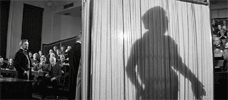
The Elephant Man
1980 -
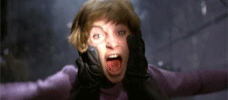
My Bloody Valentine
1981 -

Who Can Kill a Child?
1976 -

Cannibal Holocaust
1980 -
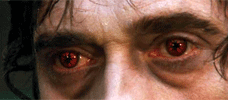
Let Sleeping Corpses Lie
1974 -
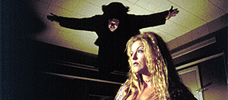
John Carpenter’s Vampires
1998 -

Jaws 2
1978 -
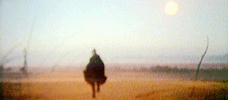
A Warning to the Curious
1972 -
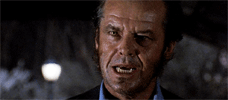
Wolf
1994 -

The Survivor
1981 -
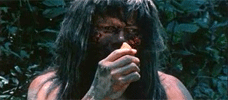
Cannibal Ferox
1981 -
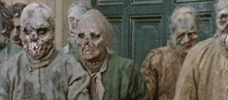
The Nights of Terror
1981 -
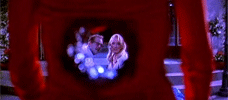
Death Becomes Her
1992 -

Alice, Sweet Alice
1976 -
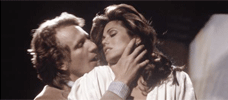
Body Double
1984 -
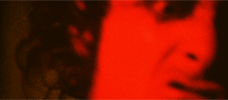
Invocation of My Demon Brother
1969 -
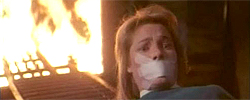
Phantasm II
1988 -
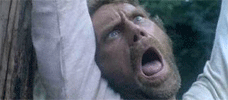
Emanuelle and the Last Cannibals
1977 -
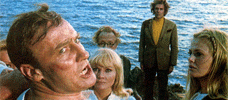
The Wicker Man
1973 -
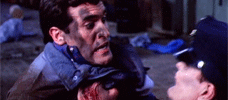
Maniac Cop
1988 -
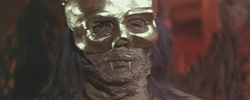
The Legend of the 7 Golden Vampires
1974 -
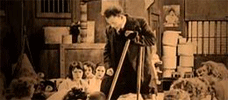
The Penalty
1920 -
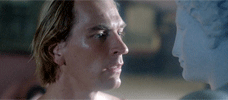
Boxing Helena
1993 -

Chew on This
2005 -
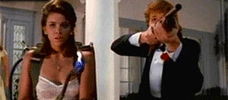
Night of the Creeps
1986 -

Night of the Lepus
1972 -
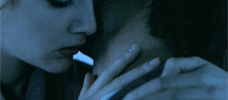
Near Dark
1987 -

Army of Darkness
1992 -

The Brood
1979 -

The Lift
1983 -

Amsterdamned
1988 -
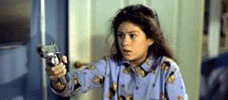
Silent Witness
1999 -

The Shaft
2001
We don’t do comments anymore, but you may contact us here or find us on Twitter or Facebook.



